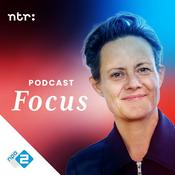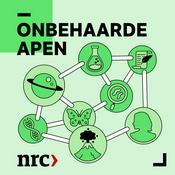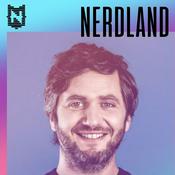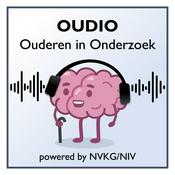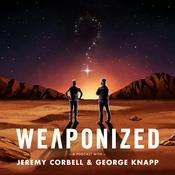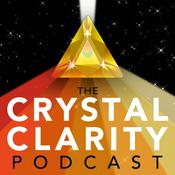1610 afleveringen
- 🤗 Upvotes: 139 | cs.CV, cs.AI, cs.CY
Authors:
Yu Wang, Yi Wang, Rui Dai, Yujie Wang, Kaikui Liu, Xiangxiang Chu, Yansheng Li
Title:
Urban Socio-Semantic Segmentation with Vision-Language Reasoning
Arxiv:
http://arxiv.org/abs/2601.10477v1
Abstract:
As hubs of human activity, urban surfaces consist of a wealth of semantic entities. Segmenting these various entities from satellite imagery is crucial for a range of downstream applications. Current advanced segmentation models can reliably segment entities defined by physical attributes (e.g., buildings, water bodies) but still struggle with socially defined categories (e.g., schools, parks). In this work, we achieve socio-semantic segmentation by vision-language model reasoning. To facilitate this, we introduce the Urban Socio-Semantic Segmentation dataset named SocioSeg, a new resource comprising satellite imagery, digital maps, and pixel-level labels of social semantic entities organized in a hierarchical structure. Additionally, we propose a novel vision-language reasoning framework called SocioReasoner that simulates the human process of identifying and annotating social semantic entities via cross-modal recognition and multi-stage reasoning. We employ reinforcement learning to optimize this non-differentiable process and elicit the reasoning capabilities of the vision-language model. Experiments demonstrate our approach's gains over state-of-the-art models and strong zero-shot generalization. Our dataset and code are available in https://github.com/AMAP-ML/SocioReasoner. - 🤗 Upvotes: 130 | cs.CV
Authors:
Ailin Huang, Chengyuan Yao, Chunrui Han, Fanqi Wan, Hangyu Guo, Haoran Lv, Hongyu Zhou, Jia Wang, Jian Zhou, Jianjian Sun, Jingcheng Hu, Kangheng Lin, Liang Zhao, Mitt Huang, Song Yuan, Wenwen Qu, Xiangfeng Wang, Yanlin Lai, Yingxiu Zhao, Yinmin Zhang, Yukang Shi, Yuyang Chen, Zejia Weng, Ziyang Meng, Ang Li, Aobo Kong, Bo Dong, Changyi Wan, David Wang, Di Qi, Dingming Li, En Yu, Guopeng Li, Haiquan Yin, Han Zhou, Hanshan Zhang, Haolong Yan, Hebin Zhou, Hongbo Peng, Jiaran Zhang, Jiashu Lv, Jiayi Fu, Jie Cheng, Jie Zhou, Jisheng Yin, Jingjing Xie, Jingwei Wu, Jun Zhang, Junfeng Liu, Kaijun Tan, Kaiwen Yan, Liangyu Chen, Lina Chen, Mingliang Li, Qian Zhao, Quan Sun, Shaoliang Pang, Shengjie Fan, Shijie Shang, Siyuan Zhang, Tianhao You, Wei Ji, Wuxun Xie, Xiaobo Yang, Xiaojie Hou, Xiaoran Jiao, Xiaoxiao Ren, Xiangwen Kong, Xin Huang, Xin Wu, Xing Chen, Xinran Wang, Xuelin Zhang, Yana Wei, Yang Li, Yanming Xu, Yeqing Shen, Yuang Peng, Yue Peng, Yu Zhou, Yusheng Li, Yuxiang Yang, Yuyang Zhang, Zhe Xie, Zhewei Huang, Zhenyi Lu, Zhimin Fan, Zihui Cheng, Daxin Jiang, Qi Han, Xiangyu Zhang, Yibo Zhu, Zheng Ge
Title:
STEP3-VL-10B Technical Report
Arxiv:
http://arxiv.org/abs/2601.09668v2
Abstract:
We present STEP3-VL-10B, a lightweight open-source foundation model designed to redefine the trade-off between compact efficiency and frontier-level multimodal intelligence. STEP3-VL-10B is realized through two strategic shifts: first, a unified, fully unfrozen pre-training strategy on 1.2T multimodal tokens that integrates a language-aligned Perception Encoder with a Qwen3-8B decoder to establish intrinsic vision-language synergy; and second, a scaled post-training pipeline featuring over 1k iterations of reinforcement learning. Crucially, we implement Parallel Coordinated Reasoning (PaCoRe) to scale test-time compute, allocating resources to scalable perceptual reasoning that explores and synthesizes diverse visual hypotheses. Consequently, despite its compact 10B footprint, STEP3-VL-10B rivals or surpasses models 10$\times$-20$\times$ larger (e.g., GLM-4.6V-106B, Qwen3-VL-235B) and top-tier proprietary flagships like Gemini 2.5 Pro and Seed-1.5-VL. Delivering best-in-class performance, it records 92.2% on MMBench and 80.11% on MMMU, while excelling in complex reasoning with 94.43% on AIME2025 and 75.95% on MathVision. We release the full model suite to provide the community with a powerful, efficient, and reproducible baseline. - 🤗 Upvotes: 111 | cs.LG, cs.CL
Authors:
Zhiyuan Hu, Yucheng Wang, Yufei He, Jiaying Wu, Yilun Zhao, See-Kiong Ng, Cynthia Breazeal, Anh Tuan Luu, Hae Won Park, Bryan Hooi
Title:
Rewarding the Rare: Uniqueness-Aware RL for Creative Problem Solving in LLMs
Arxiv:
http://arxiv.org/abs/2601.08763v2
Abstract:
Reinforcement learning (RL) has become a central paradigm for post-training large language models (LLMs), particularly for complex reasoning tasks, yet it often suffers from exploration collapse: policies prematurely concentrate on a small set of dominant reasoning patterns, improving pass@1 while limiting rollout-level diversity and gains in pass@k. We argue that this failure stems from regularizing local token behavior rather than diversity over sets of solutions. To address this, we propose Uniqueness-Aware Reinforcement Learning, a rollout-level objective that explicitly rewards correct solutions that exhibit rare high-level strategies. Our method uses an LLM-based judge to cluster rollouts for the same problem according to their high-level solution strategies, ignoring superficial variations, and reweights policy advantages inversely with cluster size. As a result, correct but novel strategies receive higher rewards than redundant ones. Across mathematics, physics, and medical reasoning benchmarks, our approach consistently improves pass@$k$ across large sampling budgets and increases the area under the pass@$k$ curve (AUC@$K$) without sacrificing pass@1, while sustaining exploration and uncovering more diverse solution strategies at scale. - 🤗 Upvotes: 64 | cs.AI, cs.CL
Authors:
Zhiyuan Hu, Yunhai Hu, Juncheng Liu, Shuyue Stella Li, Yucheng Wang, Zhen Xu, See-Kiong Ng, Anh Tuan Luu, Xinxing Xu, Bryan Hooi, Cynthia Breazeal, Hae Won Park
Title:
Collaborative Multi-Agent Test-Time Reinforcement Learning for Reasoning
Arxiv:
http://arxiv.org/abs/2601.09667v2
Abstract:
Multi-agent systems have evolved into practical LLM-driven collaborators for many applications, gaining robustness from diversity and cross-checking. However, multi-agent RL (MARL) training is resource-intensive and unstable: co-adapting teammates induce non-stationarity, and rewards are often sparse and high-variance. Therefore, we introduce \textbf{Multi-Agent Test-Time Reinforcement Learning (MATTRL)}, a framework that injects structured textual experience into multi-agent deliberation at inference time. MATTRL forms a multi-expert team of specialists for multi-turn discussions, retrieves and integrates test-time experiences, and reaches consensus for final decision-making. We also study credit assignment for constructing a turn-level experience pool, then reinjecting it into the dialogue. Across challenging benchmarks in medicine, math, and education, MATTRL improves accuracy by an average of 3.67\% over a multi-agent baseline, and by 8.67\% over comparable single-agent baselines. Ablation studies examine different credit-assignment schemes and provide a detailed comparison of how they affect training outcomes. MATTRL offers a stable, effective and efficient path to distribution-shift-robust multi-agent reasoning without tuning. - 🤗 Upvotes: 97 | cs.CL, cs.AI, cs.NE
Authors:
Tu Hu, Ronghao Chen, Shuo Zhang, Jianghao Yin, Mou Xiao Feng, Jingping Liu, Shaolei Zhang, Wenqi Jiang, Yuqi Fang, Sen Hu, Huacan Wang, Yi Xu
Title:
Controlled Self-Evolution for Algorithmic Code Optimization
Arxiv:
http://arxiv.org/abs/2601.07348v4
Abstract:
Self-evolution methods enhance code generation through iterative "generate-verify-refine" cycles, yet existing approaches suffer from low exploration efficiency, failing to discover solutions with superior complexity within limited budgets. This inefficiency stems from initialization bias trapping evolution in poor solution regions, uncontrolled stochastic operations lacking feedback guidance, and insufficient experience utilization across tasks. To address these bottlenecks, we propose Controlled Self-Evolution (CSE), which consists of three key components. Diversified Planning Initialization generates structurally distinct algorithmic strategies for broad solution space coverage. Genetic Evolution replaces stochastic operations with feedback-guided mechanisms, enabling targeted mutation and compositional crossover. Hierarchical Evolution Memory captures both successful and failed experiences at inter-task and intra-task levels. Experiments on EffiBench-X demonstrate that CSE consistently outperforms all baselines across various LLM backbones. Furthermore, CSE achieves higher efficiency from early generations and maintains continuous improvement throughout evolution. Our code is publicly available at https://github.com/QuantaAlpha/EvoControl.
Meer Wetenschap podcasts
Trending Wetenschap -podcasts
Over Daily Paper Cast
We update every weekday to discuss highest-voted papers from Huggingface Daily Paper (https://huggingface.co/papers). Both the podcast scripts and audio are generated by AI. Feedback and suggestions are welcome! Email us: [email protected]
Creator:
Jingwen Liang, 3D ML, https://www.linkedin.com/in/jingwen-liang/
Gengyu Wang, LLM ML, http://wanggengyu.com
Listen on:
Spotify: https://open.spotify.com/show/21nrhmdaA8qoBiH8q03NXL
Apple Podcast: https://podcasts.apple.com/us/podcast/daily-paper-cast/id1777620236
Cover Image by Kawen Kuang https://kawen.art
Podcast websiteLuister naar Daily Paper Cast, Focus en vele andere podcasts van over de hele wereld met de radio.net-app
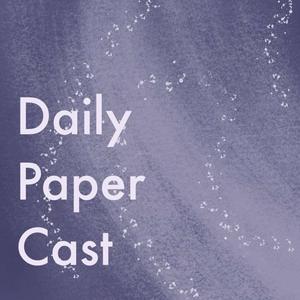
Ontvang de gratis radio.net app
- Zenders en podcasts om te bookmarken
- Streamen via Wi-Fi of Bluetooth
- Ondersteunt Carplay & Android Auto
- Veel andere app-functies
Ontvang de gratis radio.net app
- Zenders en podcasts om te bookmarken
- Streamen via Wi-Fi of Bluetooth
- Ondersteunt Carplay & Android Auto
- Veel andere app-functies


Daily Paper Cast
Scan de code,
download de app,
luisteren.
download de app,
luisteren.

